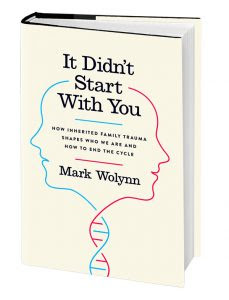FEAST OF
OUR LADY
OF
GUADALUPE -
THE
NUMBERS
INTRODUCTION
The title of my few thoughts is, “Feast of Our Lady of
Guadalupe - The Numbers.”
Today, December 12, about 3 million people will go to
Tepeyac, Mexico, for the Feast of Our Lady of Guadalupe. It’s a feast day that starts with the first
revelations of Mary to Juan Diego, a Christian Native American on December 8th
- going further to December 12, 1531
Around 20 million people make a pilgrimage to Our Lady of
Guadalupe Shrine per year.
What about other shrines and other numbers.
Lourdes, France
has about 8 million per year. Apparecida, Brazil gets about 6.6 million
people per year. Fatima has about 4.5 million per year - this year obviously
more - with its 100th Anniversary.
Guadalupe is the largest and best attended Marian Shrine
in the world.
In Hinduism, we have the largest holy place in the world. It’s
dedicated to Ayyappan. It’s in Southern India - in the Kerala region - which is
also the most Catholic area in India. This shrine gets about 40 to 50 million
pilgrims a year. This happens mostly in
late December and early January. The key god is Ayyappan - who is a war god and
the god of growth. Women in their child bearing years don’t want to go in
pilgrimage to this place - because Ayyappan is celibate.
CONVERSATIONS
Start conversations about the holy places you’ve been to.
I haven’t been to Salt Lake City to see the Mormon’s
sacred center.
But I’ve been to Israel. If you get the opportunity, if you haven’t
already, to to Israel. I did in 2000. I saw Bethlehem, The Lake of Galilee, the
place of the Last Supper, Jerusalem, the Jordan, the Dead Sea, the mount of
Transfiguration and what have you.
I liked being on the Lake of Galilee the most - because I
figured that would be closest to the what a place looked like in the time of
Jesus.
I’ve been to various other holy places. I’ve been to Monte Cassino - the key
Benedictine place. It’s in Italy, along with Assissi and all the big churches
in Rome.
In France, I got to Montmartre and Notre Dame in Paris.
But the one shrine I wanted to go to was Chartres Cathedral, 50 miles south and
west of Paris. It supposedly has the most beautiful stained glass windows in
the world. It has big time history -
being the Marian Shrine to visit way before Lourdes.
But I did get to Lourdes
which did give me a feel of what it’s like to go on a pilgrimage.
NUMBERS
I have the word “numbers” in my title. I’m sure you heard
what a Hajj for a Moslem is. It’s one of
the 5 sacred pillars of Islam - to make a sacred pilgrimage in your lifetime to
Saudi Arabia and Mecca and to the black stone - that goes way, way back in
Moslem History. They got 2.35 million folks there this year.
Parts of the sacred shrine at Mecca have had people
breaking off pieces of the sacred stone. During the French Revolution they
broke off parts of Chartres - but luckily it was not destroyed.
RELICS
Interestingly Chartres has the supposed garment of
Mary. Studies say it’s a legend - but
when we went there the tour guide said, that it didn’t make any difference if
it was real or whether it was not. The
key factor is whether people believed it to be Mary’s cloak. They did.
In Tepyyak, they have the cloak of Juan Diego, which has
the image of Mary on it. Like the tilma
or cloak of Mary, this too was tried to
be destroyed, but no luck.
CONCLUSIONS
Pilgrimages are good.
Our Mary pilgrimages are very Catholic. Mary is very
Catholic and Lourdes and Fatima, Guadalupe and Aparacida connect us deeply with
Mary.
If you have a chance, go for it.


